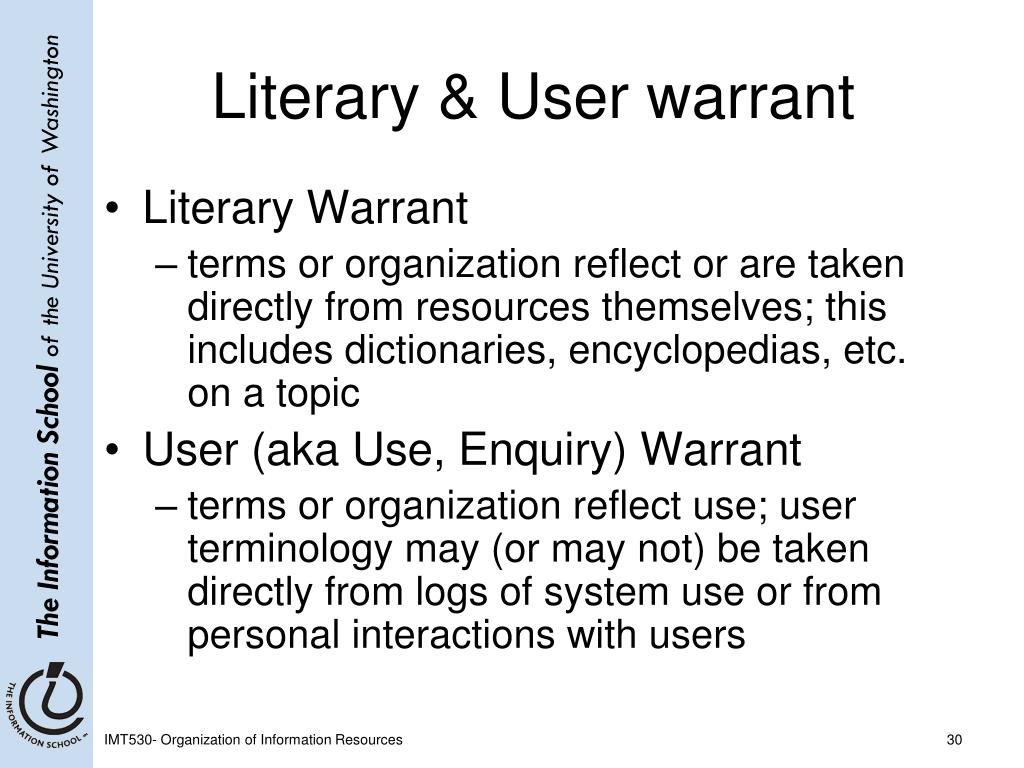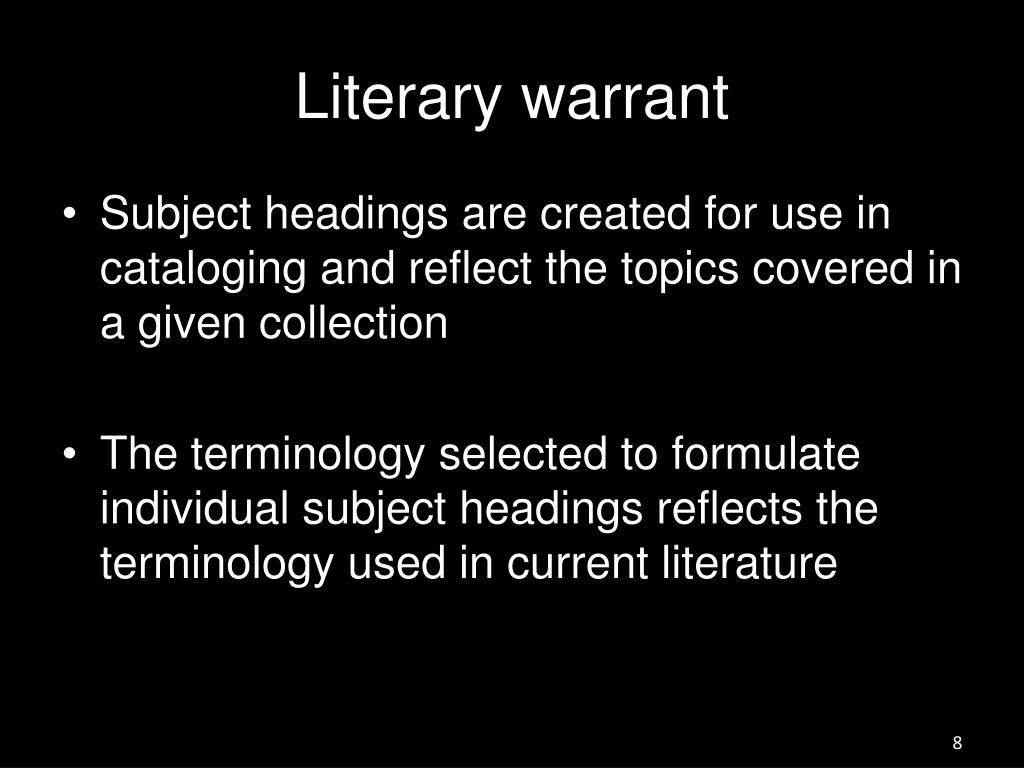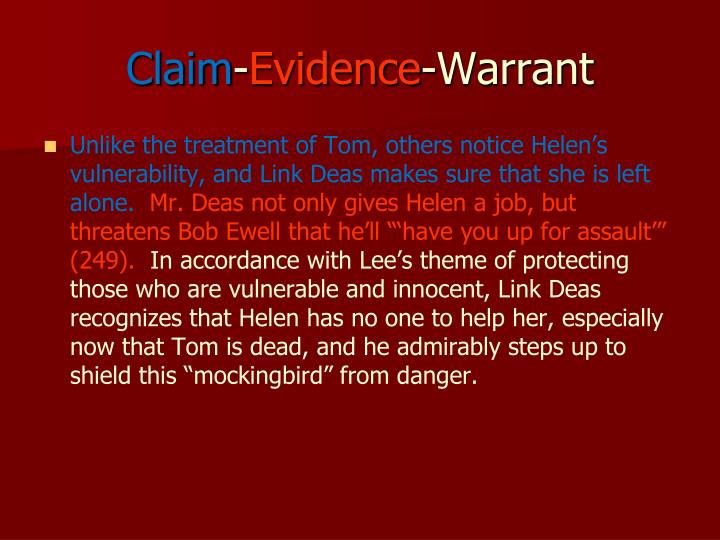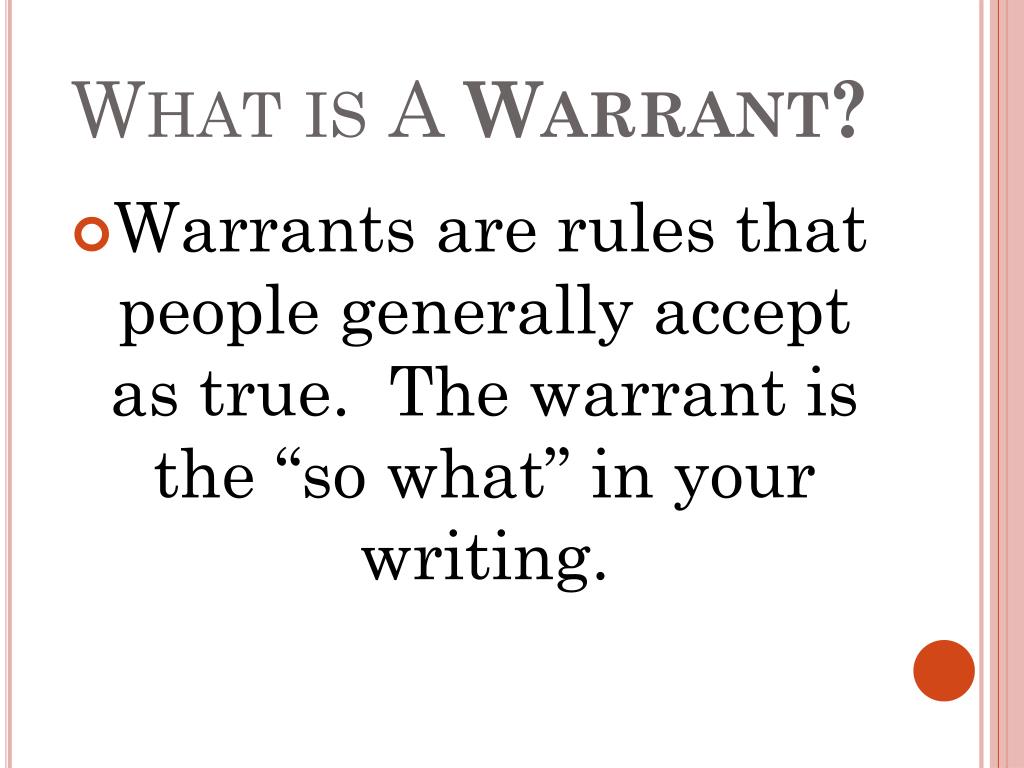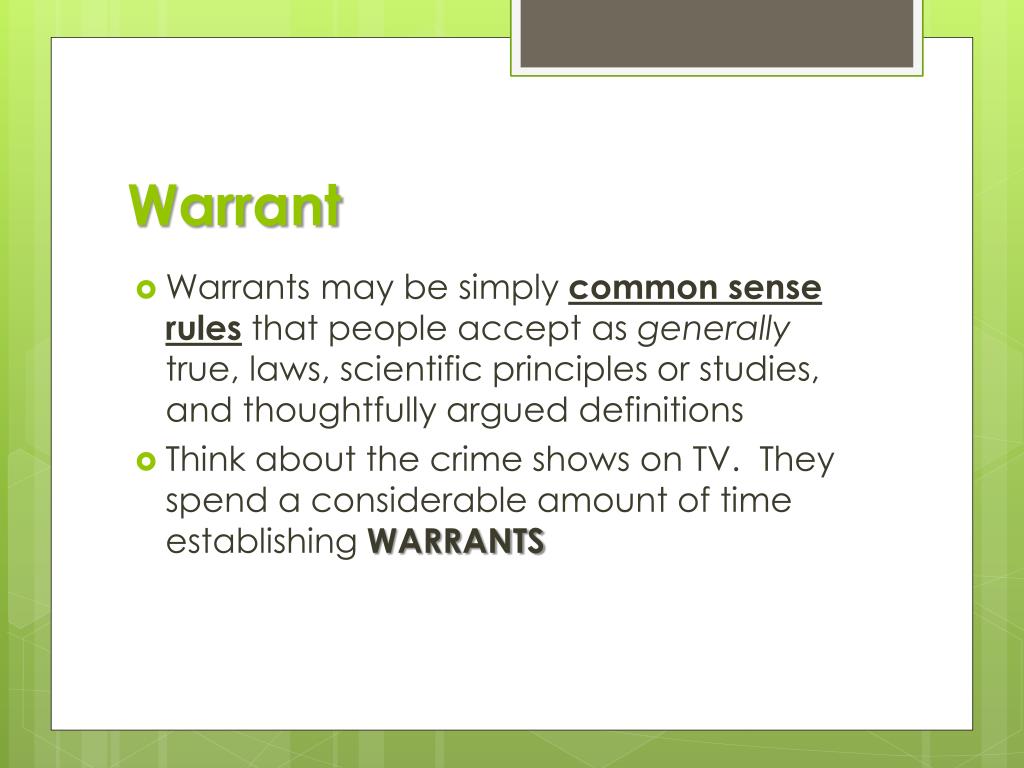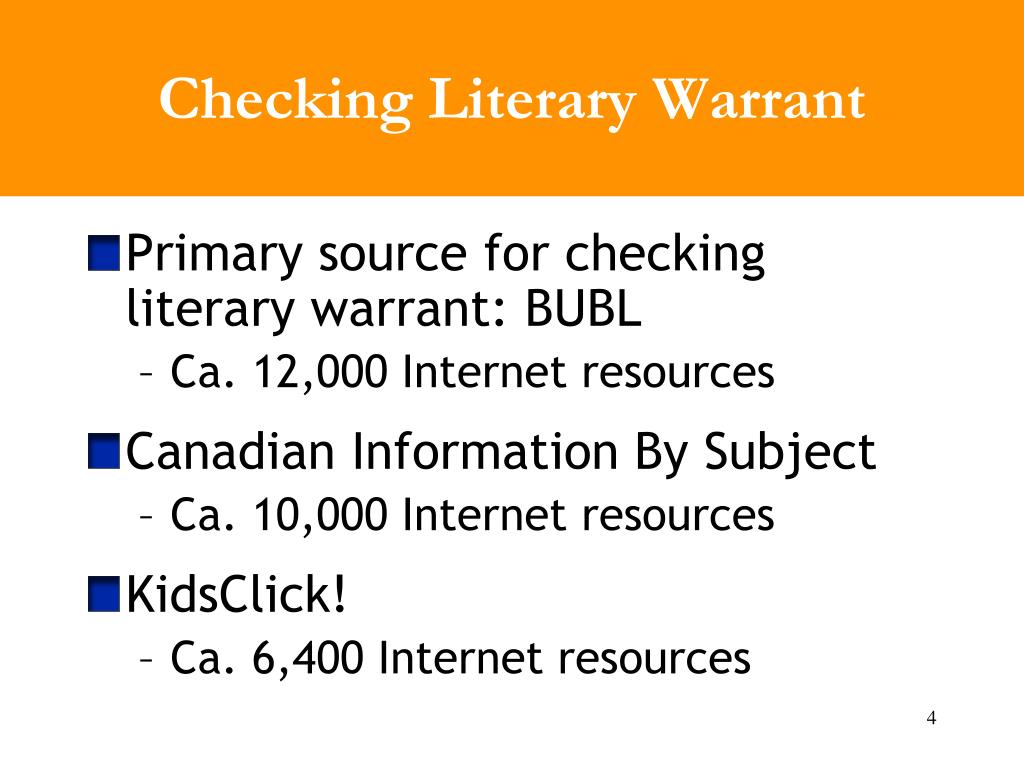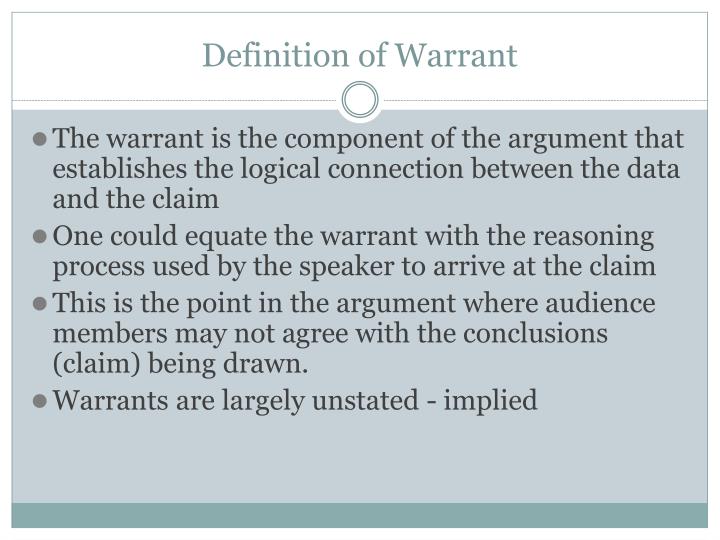Warrant Literary Definition - A claim is what the author wants the audience to. This glossary, for example, uses more than 6,000 citations from. Warrant covers conscious or unconscious assumptions and decisions about what kinds and what units of analysis are appropriate to. A warrant is the (often implicit) assumption that links the support with the claim. In lis the term literary warrant thus means that that an indexer or classifier has to provide adequate ground for the indexing,. A justification or authorization found in text.
A claim is what the author wants the audience to. A warrant is the (often implicit) assumption that links the support with the claim. A justification or authorization found in text. In lis the term literary warrant thus means that that an indexer or classifier has to provide adequate ground for the indexing,. This glossary, for example, uses more than 6,000 citations from. Warrant covers conscious or unconscious assumptions and decisions about what kinds and what units of analysis are appropriate to.
This glossary, for example, uses more than 6,000 citations from. A warrant is the (often implicit) assumption that links the support with the claim. A claim is what the author wants the audience to. A justification or authorization found in text. Warrant covers conscious or unconscious assumptions and decisions about what kinds and what units of analysis are appropriate to. In lis the term literary warrant thus means that that an indexer or classifier has to provide adequate ground for the indexing,.
PPT Sears List of Subject Headings Library of Congress Subject
A claim is what the author wants the audience to. This glossary, for example, uses more than 6,000 citations from. Warrant covers conscious or unconscious assumptions and decisions about what kinds and what units of analysis are appropriate to. A warrant is the (often implicit) assumption that links the support with the claim. A justification or authorization found in text.
PPT The Warrant and The Counterclaim PowerPoint Presentation, free
A claim is what the author wants the audience to. Warrant covers conscious or unconscious assumptions and decisions about what kinds and what units of analysis are appropriate to. This glossary, for example, uses more than 6,000 citations from. A warrant is the (often implicit) assumption that links the support with the claim. A justification or authorization found in text.
PPT Module 7a Creating Controlled Vocabularies PowerPoint
A claim is what the author wants the audience to. A warrant is the (often implicit) assumption that links the support with the claim. This glossary, for example, uses more than 6,000 citations from. A justification or authorization found in text. In lis the term literary warrant thus means that that an indexer or classifier has to provide adequate ground.
PPT LIS512 lecture 10 LCSH basics PowerPoint Presentation, free
A claim is what the author wants the audience to. A warrant is the (often implicit) assumption that links the support with the claim. In lis the term literary warrant thus means that that an indexer or classifier has to provide adequate ground for the indexing,. This glossary, for example, uses more than 6,000 citations from. Warrant covers conscious or.
PPT Literary Analysis Paragraph Structure PowerPoint Presentation
Warrant covers conscious or unconscious assumptions and decisions about what kinds and what units of analysis are appropriate to. A claim is what the author wants the audience to. A warrant is the (often implicit) assumption that links the support with the claim. In lis the term literary warrant thus means that that an indexer or classifier has to provide.
PPT Argumentative Writing Based upon the Stephen Toulmin Model For
In lis the term literary warrant thus means that that an indexer or classifier has to provide adequate ground for the indexing,. This glossary, for example, uses more than 6,000 citations from. Warrant covers conscious or unconscious assumptions and decisions about what kinds and what units of analysis are appropriate to. A claim is what the author wants the audience.
PPT Argumentative Writing PowerPoint Presentation, free download ID
A justification or authorization found in text. A warrant is the (often implicit) assumption that links the support with the claim. Warrant covers conscious or unconscious assumptions and decisions about what kinds and what units of analysis are appropriate to. This glossary, for example, uses more than 6,000 citations from. A claim is what the author wants the audience to.
PPT Using Literary Warrant to Define a Version of the DDC for
A warrant is the (often implicit) assumption that links the support with the claim. In lis the term literary warrant thus means that that an indexer or classifier has to provide adequate ground for the indexing,. A justification or authorization found in text. Warrant covers conscious or unconscious assumptions and decisions about what kinds and what units of analysis are.
PPT Toulmin’s Model of Argumentation PowerPoint Presentation ID1102469
A justification or authorization found in text. A claim is what the author wants the audience to. A warrant is the (often implicit) assumption that links the support with the claim. In lis the term literary warrant thus means that that an indexer or classifier has to provide adequate ground for the indexing,. This glossary, for example, uses more than.
Part 3 A2 Document Subject Analysis Documents Subjects
A claim is what the author wants the audience to. In lis the term literary warrant thus means that that an indexer or classifier has to provide adequate ground for the indexing,. This glossary, for example, uses more than 6,000 citations from. Warrant covers conscious or unconscious assumptions and decisions about what kinds and what units of analysis are appropriate.
In Lis The Term Literary Warrant Thus Means That That An Indexer Or Classifier Has To Provide Adequate Ground For The Indexing,.
Warrant covers conscious or unconscious assumptions and decisions about what kinds and what units of analysis are appropriate to. This glossary, for example, uses more than 6,000 citations from. A warrant is the (often implicit) assumption that links the support with the claim. A claim is what the author wants the audience to.


